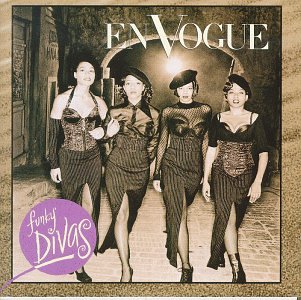I know, En Vogue was so popular that it seems strange to think of any of the group’s smash hits being forgotten. Of course, some of those hits still receive quite a bit of airplay now. “Hold On”, the first of their three #2 hits, still gets some play, as does “My Lovin’ (You’re Never Gonna Get It)”, the second. And I suppose their hit with Salt-N-Pepa, “Whatta Man”, is probably still used for any number of bad morning radio show “Battle of the Sexes” games (and I’ve heard it played in full as well).
But think about this before you answer: when was the last time you remember hearing “Free Your Mind” on the radio? If you’re like me, it’s been a very long time. I’m pretty sure I haven’t heard this song get any airplay since the 1990s. It really surprised me to think about that; I would have thought a song with a message like that of “Free Your Mind”, speaking against prejudice, would become a recurrent hit for a while and then end up on your catch-all Jack FM type of station. However, as far as I can tell, it never did. Instead, it just faded away.
“Free Your Mind” was the third song from En Vogue’s very successful second album, Funky Divas. The album had already generated two top ten hits when this song was released (“My Lovin'” being one of them).
(Funky Divas peaked at #8 on the Billboard 200. Album ℗1992 East West Bros. Records. Photo courtesy Amazon.)
“Free Your Mind” entered the Billboard Hot 100 at #89 for the week ending September 12, 1992 (chart) and peaked at #8 seven weeks later (chart). The song appeared on the Hot 100 for 20 weeks and was #93 for the year 1992.
En Vogue, of course, continued to have success through most of the 90s, but this song fell by the wayside. It deserved better.








